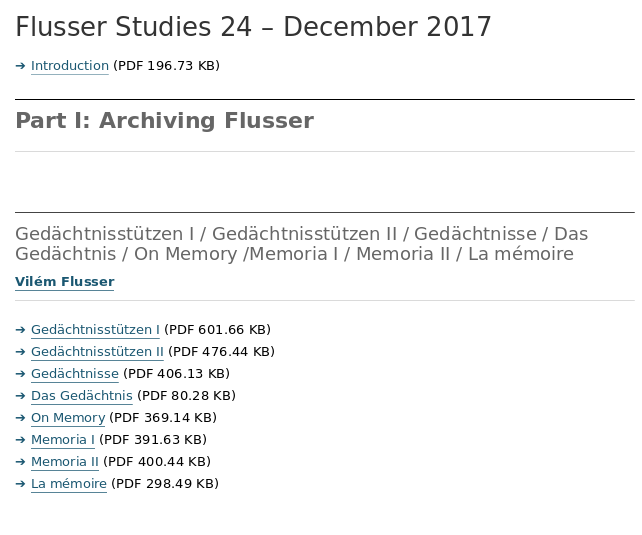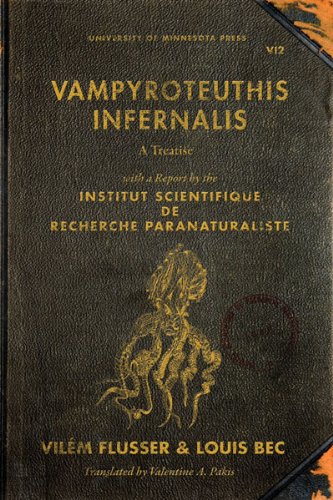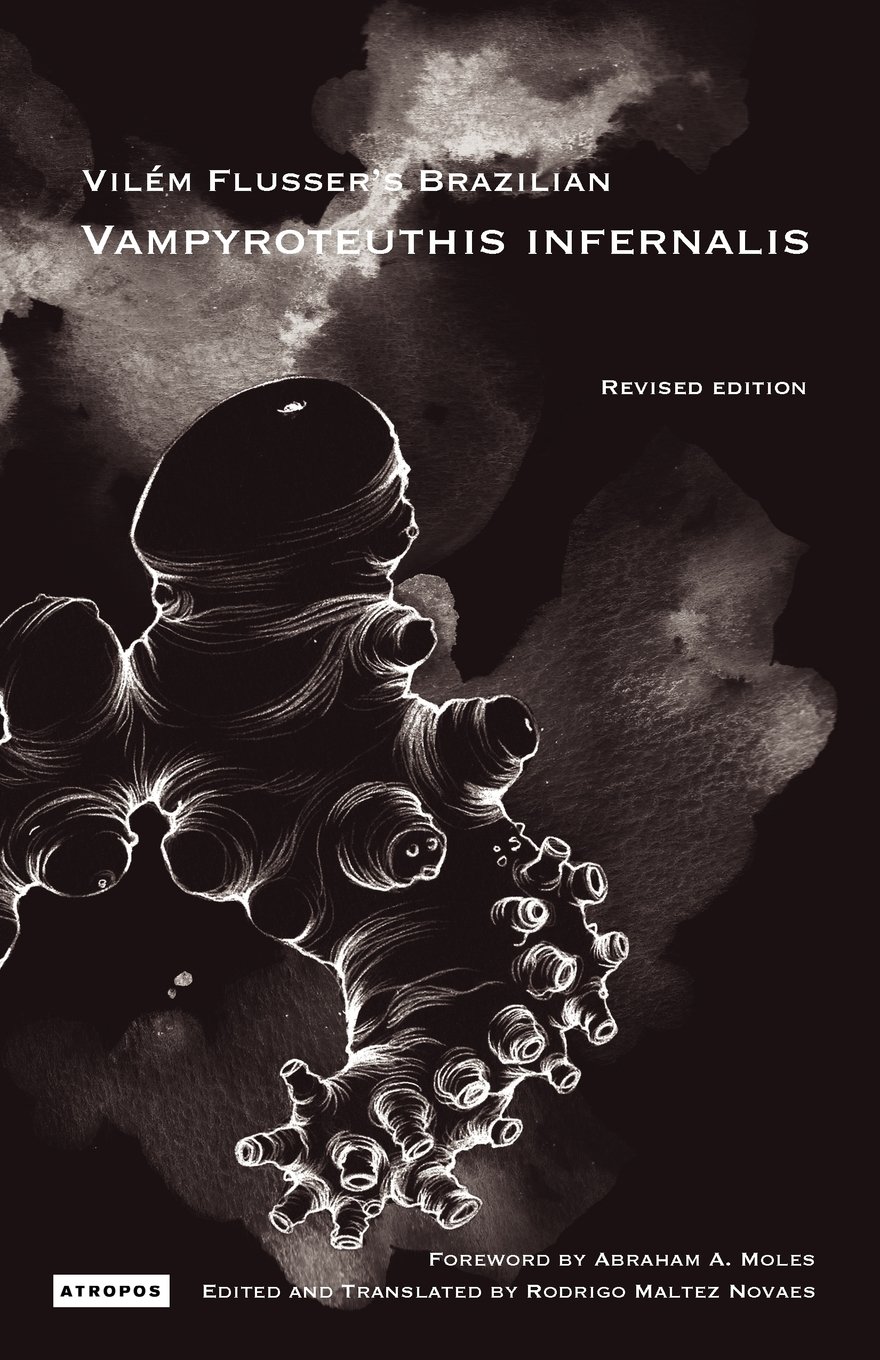Flusser Studies, 24: Archiving Flusser (2017) [DE, EN]
Filed under journal | Tags: · archive, media, theory

“Archiving the work of an artist or thinker is an activity that strongly defines and structures our view of her/him. Archives allot a specific place for each selected item and at the same time construct possible paths between them. This implies highlighting some areas while hiding others. In this sense, an archive is always also a metaphor for the work of an author. Traditional archives operate with hierarchical structures like the alphabet, which automatically define s a beginning and an end. Information technology, however, has opened a completely new array of possibilities. This issue of Flusser Studies reflects upon these theoretical and epistemological implications by presenting the different ways that Vilém Flusser’s work has been archived over the last 25 years.” (from Introduction)
With contributions by Vilém Flusser on memory, Bernd Wingert on Flusser Hypertext, Vera Schwamborn on MaHiPo, Klaus Sander and Daniel Irrgang on Flusser-Quellen, Claudia Klinger on Die Flusser-Files, Anita Jóri and Alexander Schindler on the Vilém Flusser Archive, Gerardo Santana Trujillo on MagmaMater, Gustavo Bernardo Krause on FlusserBrasil, and Simone Osthoff on her research on the archive.
Edited by Steffi Winkler and Rainer Guldin
Published December 2017
ISSN 1661-5719
Vilém Flusser, Louis Bec: Vampyroteuthis Infernalis: A Treatise, with a Report by the Institut Scientifique de Recherche Paranaturaliste (1987–)
Filed under book | Tags: · animal, art, biology, communication, human, philosophy


“How far apart are humans from animals—even the “vampire squid from hell”? Playing the scientist/philosopher/provocateur, Vilém Flusser uses this question as a springboard to dive into a literal and a philosophical ocean. “The abyss that separates us” from the vampire squid (or vampire octopus, perhaps, since Vampyroteuthis infernalis inhabits its own phylogenetic order somewhere between the two) “is incomparably smaller than that which separates us from extraterrestrial life, as imagined in science fiction and sought by astrobiologists,” Flusser notes at the outset of the expedition.
Part scientific treatise, part spoof, part philosophical discourse, part fable, Vampyroteuthis Infernalis gives its author ample room to ruminate on human—and nonhuman—life. Considering the human condition along with the vampire squid/octopus condition seems appropriate because “we are both products of an absurd coincidence . . . we are poorly programmed beings full of defects,” Flusser writes. Among other things, “we are both banished from much of life’s domain: it into the abyss, we onto the surfaces of the continents. We have both lost our original home, the beach, and we both live in constrained conditions.”
Thinking afresh about the life of an “other”—as different from ourselves as the vampire squid/octopus—complicates the linkages between animality and embodiment. Odd and strangely compelling, Vampyroteuthis Infernalis offers a unique posthumanist philosophical understanding of phenomenology and opens the way for a nonphilosophy of life.”
First published as Vampyroteuthis infernalis. Eine Abhandlung samt Befund des Institut Scientifique de Recherche Paranaturaliste, Immatrix Publications, Göttingen, 1987.
English edition
Translated by Valentine A. Pakis
Publisher University of Minnesota Press, 2012
Posthumanities series
ISBN 9780816678211
104 pages
Another English translation, from the original, unpublished and extended Brazilian-Portuguese version of the manuscript found at the Vilém Flusser Archive at UDK, Berlin
Edited and Translated by Rodrigo Maltez Novaes
With a Foreword by Abraham A. Moles
Publisher Atropos, New York and Dresden, 2011
Interventions series
ISBN 9780983173410
158 pages
Reviews: Colin Dickey (Los Angeles Review of Books, 2012), Lidia Zuin (n.d.).
Publisher: Minnesota UP, Atropos
WorldCat: Minnesota UP, Atropos
PDF (trans. Valentine A. Pakis from DE book, 2012, 10 MB, no OCR)
PDF, ARG (trans. Rodrigo Maltez Novaes from BR-PT manuscript, 2011)
Vilém Flusser: Bodenlos: Eine philosophische Autobiographie (1992) [German]
Filed under book | Tags: · biography, media theory, philosophy

Vilem Flusser beschreibt in seiner Autobiographie seine lebenslange geistige Gegenbewegung zum Sturz in den Abgrund, der sich dem Leben in diesem Jahrhundert auftat. Der Prager Jude Flusser, dessen Familie von den Nazis ermordet wurde, flüchtete 1938 über London nach Sao Paulo, wo er bis zu seiner Rückkehr nach Europa in den 70er Jahren lebte und lehrte. Der Verlust der vertrauten Welt durch den Terror des Faschismus, die existentielle Erfahrung der Bodenlosigkeit sucht Flusser denkend zu verwandeln in eine Freiheit des menschlichen Sich-Entwerfens, eine Freiheit, die jedoch immer um ihren Preis weiß. Die Autobiographie ist zugleich eine Annäherung an Flussers Denken, das seine große Anziehungskraft auch aus dem hier bezeugten persönlichen Erfahrungshintergrund bezieht.
With an Introduction by Milton Vargas
Editorial Notes by Edith Flusser and Stefan Bollmann
Publisher Bollmann, Bensheim & Düsseldorf, 1992
ISBN 3927901199, 9783927901193
295 pages
via joandleefe

